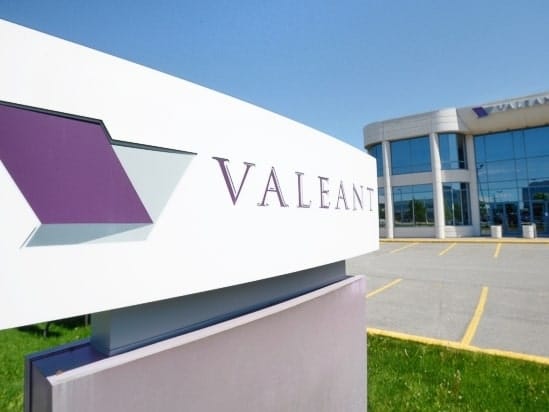
 Valeant Pharmaceuticals’ (Valeant Pharma Stock Price, Chart, News: TSX, NYSE:VRX) efforts at a turnaround may have convinced some investors that the worst is over, but the company’s massive debt load is still way too problematic, says David Baskin, president of Baskin Wealth Management.
Valeant Pharmaceuticals’ (Valeant Pharma Stock Price, Chart, News: TSX, NYSE:VRX) efforts at a turnaround may have convinced some investors that the worst is over, but the company’s massive debt load is still way too problematic, says David Baskin, president of Baskin Wealth Management.
A lot has gone on for Valeant since 2015, to say the least, with investigations into the company’s accounting and drug pricing practices topping the list. The erstwhile Canadian pharma star lost almost 93 per cent of its share value over a few months just as mounting debt from deals made under prior CEO Mike Pearson grew to $30 billion (all figures in US dollars unless otherwise noted).
But over the ensuing years, Valeant has been able to add a number of pluses to its record: a new CEO in Joseph C. Papa, a reported $6.9 billion shaved off the company’s debt and, more recently, an impending name change (to Bausch Health Companies Inc., starting in July).
Seemingly, the result has been enough to draw in some investors, as the company’s share price has risen 147 per cent since early November of last year, hitting a new 12-month high of $27.01 in today’s trading.
That share price is still miles away from where it stood three years ago, but even so, where some see progress, Baskin sees a company with a dodgy business model.
“I wouldn’t say it’s anyone’s favourite stock,” says Baskin to BNN Bloomberg. “They’ve sold off some assets and reduced their debt, but they still have an awful lot of debt on their balance sheet and still what I would call dubious profitability going forward.”
“They’ve cleaned up some of the mess but I think there’s still a long way to go before it’s the kind of stock that we would consider for our portfolio,” says Baskin. “Simply, the debt burden in a rising interest rate environment, with a lot of maturities that have to be rolled over is undue risk, in our view.”
Last month, Valeant announced its first-quarter 2018 financials, which included a revenue decline of 5.4 per cent to $1.96 billion and a net loss attributable to the company of $2.69 billion or $7.68 per share, compared to a profit of $628 million or $1.79 per share for last year’s Q1.
Papa said the results showed that the company was making significant progress.
“For the first time since 2015, the company delivered overall organic revenue growth that tracked above expectations and was driven by our Branded Rx and Bausch + Lomb/International segments,” said Papa in a press release. “As a result, we are raising our full-year revenue and Adjusted EBITDA (non-GAAP) guidance ranges to reflect our strong performance in the first quarter.”
Leave a Reply
You must be logged in to post a comment.





 Share
Share Tweet
Tweet Share
Share




Comment